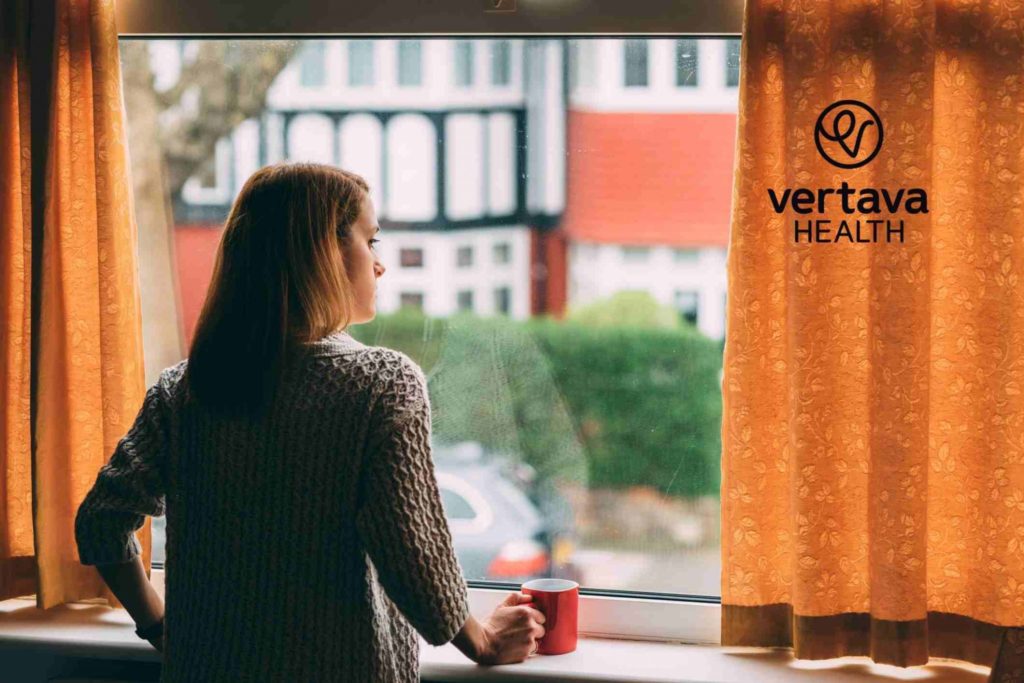COVID-19 took the world and turned it upside down. With social distancing strongly encouraged, the coronavirus pandemic has drastically changed the way we socialize. Instead of being able to meet up with friends or visit family, many plans have been canceled and now people are left feeling isolated and lonely.
The Connection Between Social Isolation & Mental Health
Humans are social creatures and lack of social interactions can have a bigger impact than many people realize. According to some studies, isolation can lead to a variety of physical and mental ailments. It has been connected with poor sleep quality, impaired thinking, poor cardiovascular health, earlier mortality, and depression.1 With the coronavirus pandemic forcing people to remain apart, the negative effects of social isolation may be more prominent than ever. One survey from late June of 2020 found that about 40% of adults in the United States were struggling with a least one behavioral health condition.2 This high number may be due in part to the lack of social interaction since restrictions began in March.
How to Cope with Isolation During COVID-19
With the current state of the world, it is natural to feel a little isolated or lonely, but there are ways of coping with social isolation because of COVID-19 so it doesn’t consume your life. These tips on how to deal with isolation during the coronavirus pandemic could help you make it through and make your days a little brighter.
Have Regular Virtual Meet-Ups
While it may not be as rewarding as face-to-face meetings, virtual meet-ups are a safe alternative to in-person events. Instead of canceling, transition your social calendar to virtual or COVID-friendly meet-ups. Adapting rather than cancelling your plans allows you to still get a regular amount of social interaction that can help you feel less isolated.
Social Distance with Someone Else
Dealing with social isolation from COVID-19 is especially hard if you live alone. Instead of going through the coronavirus pandemic by yourself, you could quarantine with a friend or your family. Having one of your closest friends or family members physically present with you when you are unable to see others in-person can help reduce loneliness.
Stay Busy
Dealing with isolation and loneliness is often harder when you are not doing anything. Rather than dwelling on these feelings, get busy. Keeping a full schedule can help distract you and reduce these feelings.
Try Creative Communication
In a time when in-person interactions are limited, it can be difficult to feel connected to others. Facetime can feel stale after a while so get creative with your communication. Organize a virtual game night with your family. Write and mail letters to your loved ones. Text some fun ice breaker questions in your group chat and see how everyone responds.
Get A Pet
A survey found that 80% of pet owners felt like their pets made them less lonely.3 Getting a furry friend could help you feel less isolated as the coronavirus pandemic continues. They can also give you a sense of purpose and keep you busy which may also help. Pets can be a huge responsibility, so only get one if you are prepared for this type of commitment. If you aren’t ready for this leap, you could volunteer at an animal shelter or foster pets.
Join a Group
Although you may not be able to meet up like before, many groups have adapted to the times. Join a virtual book club. Attend an online class. Try the outdoor yoga session. Even these types of group meet-ups or virtual events can help you not only connect with others but also potentially meet new people.
Get Help
Because isolation and mental health are connected, if you are struggling to cope with isolation on your own, you should get help. The feeling of loneliness that you are experiencing may be related to depression or another mental health disorder. Because you may not know how to deal with isolation on your own, professional mental health treatment could help you work through these feelings and improve your overall well-being. At Vertava Health our wellness center helps people struggling with both addiction as well as poor mental health. If you or someone care about is having a hard time and feeling isolated, you are not alone. Get help. Contact us today to learn more.


